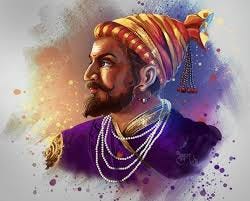Beyond the Battlefield: Shivaji Maharaj’s Impact on Women’s Safety and Social Reform
Celebrating his legacy on Shivaji Jayanti
On the occasion of Chhatrapati Shivaji Maharaj’s birthday, I would like to start by wishing everyone a Happy Shivaji Jayanti.
A warrior and a great leader with visionary thinking, he established himself as a pivotal figure in Maratha and Indian history. His forward thinking had an impact even centuries later—be it on women’s safety or acceptance and involvement despite caste or religion. His actions then saved us from centuries of Mughal rule and atrocities.
Women’s Safety: A Legacy of Shivaji Maharaj
As a girl who has been living in the Mumbai Metropolitan Region for almost 2 decades, the relative safety that Mumbai offers is surely peaceful. This safety and respect traces back to Chhatrapati Shivaji Maharaj as well. Women are always thankful to him as his teaching transcends centuries, making Mumbai a pretty safe city to live in compared to most of the country. Cases of atrocities are reported less in Maharashtra than in other states. We are happy to live in the land of Shivaji Maharaj, which is quoted in several podcasts and interviews too.
Social Reform Under Shivaji Maharaj: Caste Mobility and Religious Tolerance
Beyond ensuring women's safety, Shivaji Maharaj also championed social reform, particularly in caste mobility and religious tolerance. People from lower castes found acceptance during his rule. Several soldiers even experienced upward mobility from the peasant class to Kshatriya. In contrast to 21st-century India, there was more religious tolerance too.
Historical Representation: Shivaji Maharaj in History Textbooks
Those who have studied from Maharashtra State Board know quite well about his contributions to the freedom struggle and other social causes. Unfortunately, those from CBSE or other national-level education boards like ICSE, CIE, etc., hardly know anything much. His contributions were reduced to a page or even a paragraph in CBSE history textbooks throughout 5 years of Social Sciences. I remember hardly studying anything much about him, but the whole Mughal history was repeated several times. Whatever I read about Maratha kings was in my junior college years as I migrated to Maharashtra State Board and online resources. This is what dissatisfied me about CBSE- they focused more on immigrants who went on to commit atrocities against the native population. Why was there unnecessary glorification of foreign rulers who ate up India’s resources and negatively affected India’s culture? This includes child marriage, ghoonghat pratha or even Jauhar as women (initially of Royal class) tried to protect their dignity from the invaders.
The curriculum places significant emphasis on Mughal history while underrepresenting native warriors like Shivaji Maharaj, Maharana Pratap, and the Ahoms, whose contributions were pivotal to India’s resistance. Luckily, Mughal history will be limited in upcoming editions. On another hand, Bollywood reduced the life of an undefeated warrior to a mere extra-marital love story/affair.
Conclusion: The Timeless Influence of Shivaji Maharaj
Shivaji Jayanti is a major day for the Marathi people, but the influence of his visionary thinking transcends time and has changed India for the better, making him a pioneer figure in India and Maratha history.
As we celebrate Shivaji Jayanti, let us not only remember his past contributions but also strive to uphold his values of justice, inclusivity, and security in modern India.





Shivaji Maharaj ki jay. Thanks for remembering his contributions to society at large.